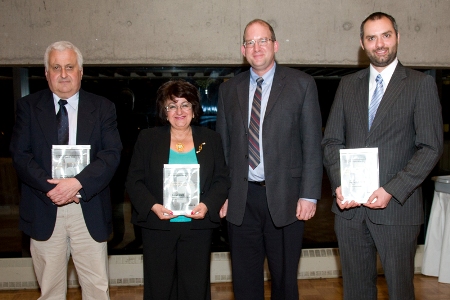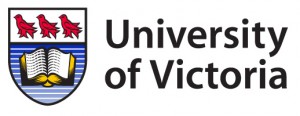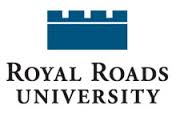
From Left to Right: Dr. Jim Anderson – Academic of the Year Award; Dr. Rabab Ward – Paz Buttedahl Career Achievement Award; Dr. David Mirhady – President, CUFA BC; Prof. Benjamin Perrin – Early in Career Award
A Law professor whose academic work led to harsher penalties for human traffickers as well as Craigslist removing erotic services ads in Canada, a Language and Literacy professor who created programs to improve literacy outcomes for children of immigrants, Aboriginal peoples, and low-income British Columbians, and an Electrical and Computer Engineering professor whose pioneering research in signal processing touches our lives every day, received this year’s CUFA BC Distinguished Academics Awards on Wednesday, April 27.
UBC’s Prof. Benjamin Perrin received the 2011 Early in Career Award Sponsored by Scotiabank for his work in documenting the prevalence and severity of human trafficking in Canada, and using that work to raise our awareness and change our laws.
UBC’s Dr. Jim Anderson received the 2011 Academic of the Year Award for his work in creating the Parents as Literacy Supporters (PALS) and Literacy for Life programs to help immigrant, Aboriginal and low-income parents to better support their children in improving their literacy.
UBC’s Dr. Rabab Ward received the 2011 Paz Buttedahl Career Achievement Award for her pioneering research in signal processing, which has resulted in improved picture quality for cable television, a sophisticated brain computer interface to allow people with mobility impairments to control various devices, and an improved method of processing mammograms that results in 70% of cancers being identified a year earlier than was previously possible.
These awards are presented annually by the Confederation of University Faculty Associations of BC (CUFA BC) to recognize faculty members at BC’s public universities who use their research and scholarly work to make contributions to the wider community.
“Professor Perrin, Dr. Anderson and Dr. Ward are outstanding examples of faculty members at BC universities who use their research to benefit the wider community,” said Dr. David Mirhady, President of CUFA BC.
“Professor Perrin’s success in translating his research into tangible public policy is inspiring”, Mirhady continued. “Dr. Andersonss effort to tailor literacy programs to meet the needs of specific communities is an example that should be taken up in other fields. Dr. Ward’s research proves that theoretical work and practical applications are two sides of the same coin.”
Sheryl MacKay, host of CBC Radio One’s North by Northwest, emceed the awards dinner at the Law Courts Inn in Vancouver.
The CUFA BC Distinguished Academics Awards are in their seventeenth year and receive generous support from Scotiabank, Pacific Blue Cross, CBC Radio One, University of British Columbia, Simon Fraser University, the University of Victoria, the University of Northern British Columbia, and Royal Roads University.
CUFA BC represents 4,600 university professors, instructors, academic librarians and other academic staff at the province’s five doctoral universities: SFU (Burnaby, Vancouver and Surrey campuses), UBC (Vancouver and Kelowna campuses), UNBC (Prince George, Terrace, Fort St. John and Quesnel campuses), UVic and Royal Roads University.
BACKGROUNDER
2011 CUFA BC DISTINGUISHED ACADEMICS AWARDS RECIPIENTS
APRIL 27, 2011
EARLY IN CAREER AWARD – SPONSORED BY SCOTIABANK – 2011
PROFESSOR BENJAMIN PERRIN – FACULTY OF LAW – UNIVERSITY OF BRITISH COLUMBIA
A summer vacation set Professor Perrin on the path to receive this award. It was the summer after he finished his undergraduate commerce degree at the University of Calgary and he was considering taking a few months off to do some volunteer international development work.
A conversation with a friend led him and several friends to form the Future Group to combat human trafficking and the child sex trade. This group then travelled to Cambodia to document the suffering caused by the sexual exploitation and human trafficking of women.
What was to have been a four-month project stretched into eight months, and by the time he returned to Canada, Professor Perrin had decided that a career in the law offered the best avenue to seek justice for the victims of human trafficking.
He completed his law degree at the University of Toronto and went on to pursue a Masters of Law degree at McGill University. It was at McGill that he became involved in the legal clinic supporting the Special Court of Sierra Leone.
This Court had the responsibility to prosecute violations of humanitarian law that took place during the country’s civil war. From this vantage point, he learned about both the power and the limitations of international law. He also learned that the university was a unique base from which to change the world for the better.
It was this quest for change that led Professor Perrin to research and write the book Invisible Chains, which documents the prevalence and severity of human trafficking in Canada.
This academic work was written in a style that would be accessible to the general public and has been the backbone of Professor Perrin’s subsequent work to train the legal community and rally the support of the general public against modern slavery.
The success of his work is measured by the creation of new Criminal Code provisions in June 2010 to provide stricter penalties for those found guilty of human trafficking, and by Craigslist discontinuing its advertisements for erotic services in Canada in December 2010. All of this was accomplished within four years of becoming a university professor.
For his research into the dark corners of Canadian society, and for his untiring pursuit of justice, Professor Benjamin Perrin is the 2011 recipient of the Early in Career Award – Sponsored by Scotiabank.
ACADEMIC OF THE YEAR AWARD – 2011
DR. JIM ANDERSON – DEPARTMENT OF LANGUAGE AND LITERACY EDUCATION – UNIVERSITY OF BRITISH COLUMBIA
Dr. Anderson started his professional life as a teacher and a school administrator. Since becoming an academic in 1987, Dr. Anderson’s research has focused on early literacy and the role played by family in fostering literacy. It was this line of research that led Dr. Anderson to develop two innovative programs.
In 2000, Dr. Anderson and his program partner Fiona Morrison from the Langley School Board, developed Parents as Literacy Supporters (PALS). PALS is built around the idea that traditional early literacy programs are built on white, middle class conceptions of reading and writing. This is manifested in such things as the availability of reading materials in the home, choice of reading materials and parental support for learning. Children from families that didn’t fit this profile were thus disadvantaged.
PALS works with parents in order to understand their social and cultural context, and uses this knowledge to help the parents improve literacy learning in the home. It also equips parents to deal effectively with teachers and school administrators.
From the pilot project in 2000, PALS has expanded to 25 school districts in British Columbia and is being used by other educators in Ontario, Northwest Territories, Switzerland and Uganda.
Dr. Anderson also worked with UBC colleague Victoria Purcell Gates to create the Literacy for Life program. This program uses real-world activities and real-world texts – such as reading a recipe to make a birthday cake – to improve the literacy of both parents and their children.
For the creation of the PALS and Literacy for Life programs, Dr. Jim Anderson is awarded the 2011 Academic of the Year Award.
PAZ BUTTEDAHL CAREER ACHIEVEMENT AWARD – 2011
DR. RABAB WARD – ELECTRICAL AND COMPUTER ENGINEERING – UNIVERSITY OF BRITISH COLUMBIA
At first glance, it’s not obvious how Dr.Ward’s work on signal processing won her this award. The innovative and complex mathematics that enables the enhancement and transformation of electrical signals appears pretty far removed from the daily life of British Columbians.
Thirty years ago, this might have been the case, but today we are constantly using electronic signals in the form of computers, cell phones, television, the internet, DVDs, medical imaging, cash machines, surveillance cameras, and traffic lights, to name but a few examples. How those signals are reliably transmitted and subsequently used is the realm of signal processing.
In particular, Dr. Ward’s research has resulted in:
a means to remotely monitor the quality of cable television signals;
improvements in the processing of mammograms that permit detection of 70% of cancers a year earlier than was previously possible;
a video system that measures the size, mass and speed of fish without harming them;
a device to detect the level of stress in a baby’s cry for the purposes of waking deaf parents;
and a high-performance brain computer interface.
Dr. Ward has no shortage of ideas to drive her research, but she finds that it is her students who often come up with some of the more interesting ideas, sending her off in directions she might not have explored on her own.
It is a testament to her ability to teach and mentor that her students have gone on to distinguish themselves as professors, researchers and engineers.
For her pioneering work in signal processing, for her application and extension of theory to solve a myriad of real world problems, and for her technical and educational leadership, Dr. Rabab Ward is the 2011 recipient of the Paz Buttedahl Career Achievement Award.
2011 Distinguished Academics Awards Sponsored by








